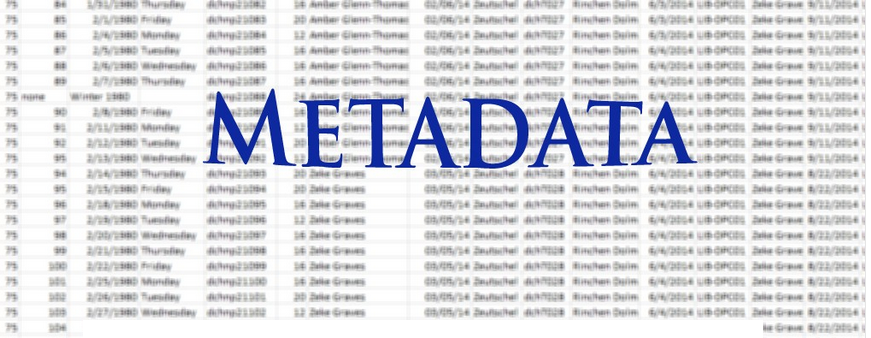What is Metadata? The term “Metadata” sounds extremely technical but it actually isn’t very technical at all. Metadata just means information about your products that will assist the individuals who are searching for them easier to find. Metadata is used to find data in things such as webpages, software, television, radio broadcasting, and countless other places including music.
When it comes to music, the metadata is simply information about your album, songs, and mixes that you plan to include with your release by embedding the information right into the music files. Some common examples of metadata include:
- Album Name
- Artist Name
- Song Name
- Copyright Info
- ISRC Codes
- Writer
- Engineer/Producer
- Publisher
Normally when it comes to the process of you adding metadata to your tracks this is usually done after you’ve approved all final mixes and you’re ready for mastering. A common question that many indie D.I.Y. (Do It Yourself) artists often ask: Is metadata required for your music? The answer to the question should be an EMPHATIC yes. According to an article on justmastering.com it states 4 reasons why your music should have embedded metadata. The first reason is that the metadata embedded in a music file is independent of its file name. This means that if a listener renames the file, the metadata is preserved. In any music players that read the metadata, it will show up where it needs to display the true song name, artist, and release details that you specified. The second reason is that metadata can play an important role in getting you paid when your music is featured in broadcast (commercial, TV, video game, and micro-licensing,) synchronization licensing opportunity. An example of this would be the copyright information, publisher, and artist/composer information could be used to help find you and pay you. Also the ISRC code could be used as another way to uniquely identify your recording, and connect you as the owner of the recording. The third reason is that embedding metadata into your music helps your fans find you. Metadata can be indexed and made searchable on search engines, music blogs, and websites all over the world. It also makes it easier for listeners to import tracks into their favorite music players because many music players read the metadata in a file when you’re importing it. The fourth reason is that if your music is streamed or broadcast around the world, your listeners will want to know more about your music. For example imagine riding in a car and you heard a song on the radio and then glanced at the display to find out who the artist was. Without having the metadata embedded there would be no way to identify your music.
Metadata is often something that is looked over when it comes to properly putting out and publishing your music. As you can see from what is mentioned above there are many reasons why you as an artist should NEVER forget to digitally embed your ownership information on your work. As my friend and colleague Karen Marie Mason who is a 20+-year music industry executive always likes to say: “You don’t want to leave your coins on the table”.
Till Next Time
~Durell
N’Couraging & N’Spiring Through The Arts Everyday”

